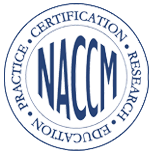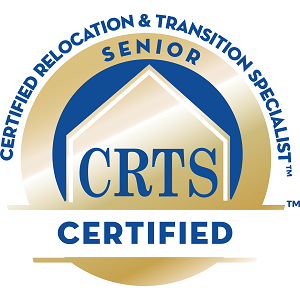Mental Illness Awareness Week: How Care Managers Can Help
Every year, 1 in 5 (46 million) U.S. adults experience mental illness. And every year, Mental Illness Awareness Week draws attention to these individuals, their families, and caregivers.
While the younger generations advocate for themselves and others, the older generations are often overlooked, despite being greatly affected by varying mental illnesses. According to data from the CDC, 20% of adults 55 and older have some form of mental health problems, such as anxiety, depression, and cognitive impairment.
Mental Illness Awareness Week is a reminder of the importance of mental health at every age. In the senior care community, we like to use this time to remind caregivers of the importance of psychological wellness as people age.
What is Mental Illness Awareness Week?
Mental Illness Awareness Week, founded by the National Alliance on Mental Illness, happens the first week in October each year. In 2022, Mental Illness Awareness Week runs from October 2 to October 8.
The 2022 theme for Mental Illness Awareness Week is “What I Wish I Had Known”. Each weekday is dedicated to highlighting a specific topic that people affected by mental illness have discovered through their journey with getting a diagnosis and recovery.
The topics for each day are:
- October 3, 2022 – Stigma
- October 4, 2022 – Medication (This is also the National Day of Prayer for Mental Illness Recovery and Understanding)
- October 5, 2022 – Therapy
- October 6, 2022 — Disclosing (This is also National Depression Screening Day)
- October 7, 2022 — Caregiving
A Brief History
The National Alliance on Mental Illness (NAMI) established Mental Illness Awareness Week in 1990. This event is designed to raise awareness about the prevalence of mental illness and all the opportunities for people to seek professional help.
Although debilitating in many ways, psychological conditions are also highly treatable. During this event, NAMI encourages U.S. organizations to hold a variety of events, such as outreach campaigns, candlelit vigils, prayer events, movie nights, support groups, and charity runs.
Importance of Mental Health Awareness for Seniors
As they age, older adults face unique circumstances that increase their risk of developing mental illness. Some of these risk factors include:
- Loss of independence. As people age, they often require more assistance to perform routine activities. They may no longer be able to drive, travel alone, or live independently. This can lead to depression and a unique sense of grief and mourning for the time passed.
- Death of loved ones. Older adults are more likely to experience the death of beloved spouses, siblings, and friends. The compounding grief can also heighten their risk of a depressive disorder.
- Existential anxiety. Fear of the unknown or worrying about one’s lifespan can lead to chronic anxiety. Because as people age, they have to come to terms with their own mortality.
- Health anxiety. Another common struggle among seniors is the additional health risks associated with aging, leading to bodily changes and differences in their mobility. Growing older naturally increases one’s risk of certain conditions, which can trigger ongoing anxiety among some people.
How Care Managers Can Make a Difference
Care managers are professionals in senior care. They understand the unique needs, challenges, and barriers to treatment that seniors face, and they know how to help their clients overcome these obstacles.
One of the benefits of consulting or hiring a professional care manager is increased access to mental health services. They can connect seniors with trained counselors who have specialized knowledge of older clients’ risks, experiences, and needs. They can offer counseling remotely, in the home, in long-term care centers, and in assisted living facilities.
The goal of a care manager is to help seniors lead lives as freely and happily as possible. They are advocates, supporters, and cheerleaders for their clients. They do everything they can to help seniors age with dignity, reduce health risks, and make life more rewarding for their clients.
Professional care managers do so by acknowledging the current needs and experiences of every individual they work with. Their education helps them assess each person’s needs and identify when specific interventions (such as mental health support) could be beneficial.
Signs of Declining Mental Health Among Seniors
Seniors today grew up in a time when conversations surrounding mental health were essentially nonexistent and considered taboo; as a result, many believe in certain stigmas that prevent them from voicing their needs and seeking treatment.
It’s crucial to understand that addressing presumed symptoms of mental illnesses should be done in a gentle, empathetic manner. The goal is to help your aging loved one recognize that you care about their well-being and want to work together to help them feel better.
If you are concerned about a loved one in your life who may be silently suffering from a mental illness, here are a few signs to look out for:
- Changes in personal hygiene and activity levels
- Memory issues/disorientation
- Physical symptoms such as headaches, stomachaches, and general pains
- Unusually low mood that persists for days
- Increased irritability
- Mood changes that can last for days or weeks at time, such as feeling anxious to depressed or confident to uncertain.
- Reduced appetite and mobility
- Social withdrawal from friends, family, and caregivers
Working With a Caregiver — What You Can Do to Help
To help an aging loved one with mental illness, there are plenty of techniques and strategies you can try. First, focus on being more present with them. Loneliness fuels mental health problems, and internal struggles can make a person feel isolated.
Spending meaningful time with your loved one can help them think more positively. Try playing a board game, going for a walk through the park, or cooking together.
Consider having a conversation about their mental health. Starting out can be difficult, but most seniors feel grateful that someone recognizes they’re struggling and wants to help. Choose a time when you are both relaxed – and don’t get angry or defensive if they appear resistant at first. If the conversation doesn’t work initially, let your loved one know that you are here for them whenever they would like to talk.
You can also schedule a doctor’s visit if you are concerned about their health. Doctors can perform mental health screenings in their offices and identify early signs of cognitive conditions like Alzheimer’s.
Another effective strategy for many families is to hire a professional care manager. They can perform a variety of assessments and arrange services that help your loved one feel better. They are also a great source of support for you and your loved one. So, if you need to have a difficult conversation with an aging loved one centered around their mental health, consider including a professional care manager to act as the moderator.
Starting the Process
If you’re unsure of how to proceed or how to take the next step in getting your loved one the proper care and treatment they need, consider hiring a care manager. Not everyone is equipped to handle the array of challenges that arise from aging, including mental illnesses – and that’s okay. This is one of the many reasons professional care managers exist.
Before hiring a care manager for your loved one, research organizations near you that offer the right support services for your loved one’s needs. It all starts with a conversation.
At Reflections Management and Care, we provide dedicated support to seniors and their families throughout the Baldwinsville, Syracuse, and Onondaga County areas. From our initial intake meeting, we aim to learn more about you and your loved one, including any concerns you have and how our services can meet your loved one’s individual needs.
Ready to start the process? Get in touch with us now to determine if our services align with the needs of your loved one.














